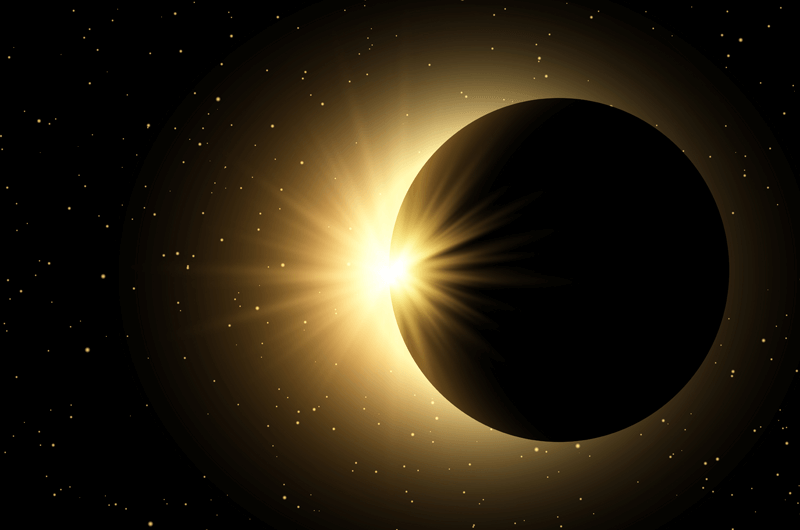Ophthalmic injuries due to improper viewing are quite common after a solar eclipse. Things are the same in 2017 too. People across the United States had the opportunity to view a total solar eclipse on August 21, 2017. Several reports indicate that this recent eclipse or The Great American eclipse has ended with many patients lining up at hospitals across America. Professional medical coding companies can help ophthalmologists document these eclipse-related eye injuries with the latest ICD-10 codes. Along with potential eye injuries with symptoms such as headaches and blurry vision, other injuries reported include fractured foot by falling off a step while wearing dark eclipse glasses, and sprains, strains, lacerations and wrist fractures for eclipse viewers who did not pay attention to their surroundings.
Though safe solar viewing recommendations are provided by The American Academy of Ophthalmology (AAO) and the American Astronomical Society such as to use only ISO-certified solar glasses and not to use solar filter or eclipse glasses with scratches, most people who do not read the warnings place themselves at risk.
Even fake eclipse glasses can injure human eyes. The most common effect is that patients see a bright spot in the middle of their visual field. Slight damages can be treated with anti-inflammatory drugs that help the eyes return to normal in a few days, while others are untreatable.
Here are some ICD-10 codes for specific solar eclipse injuries.
Photokeratitis
Photokeratitis or ultraviolet keratitis is like sunburn of the cornea from ultraviolet exposure. This painful condition is also known as snow blindness or welder’s keratitis.
- 13 – Photokeratitis
- 131 – Photokeratitis, right eye
- 132 – Photokeratitis, left eye
- 133 – Photokeratitis, bilateral
- 139 – Photokeratitis, unspecified eye
Solar Retinopathy
Solar retinopathy is a burn of the retina from ultraviolet exposure. With this condition, most patients notice a very small blind spot in the central vision that they can see around.
- 02 – Solar retinopathy
- 021 – Solar retinopathy, right eye
- 022 – Solar retinopathy, left eye
- 023 – Solar retinopathy, bilateral
- 029 – Solar retinopathy, unspecified eye
External Cause
Damages occurred due to other causes can be documented under these codes.
- X32 – Exposure to sunlight
- X32XXXA – Exposure to sunlight, initial encounter
- X32XXXD – Exposure to sunlight, subsequent encounter
- X32XXXS – Exposure to sunlight, sequela
While ophthalmologists and other physicians would be busy treating patients experiencing the after effects of the current eclipse, medical billing outsourcing companies can help these specialists with their medical billing and coding tasks.




